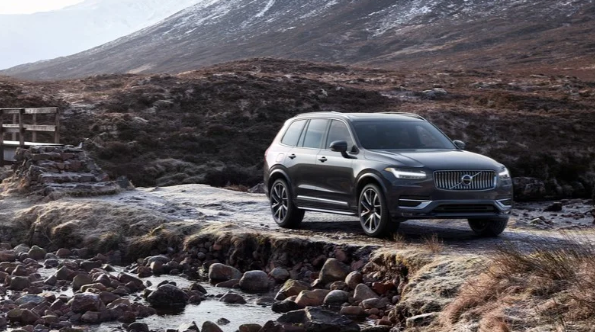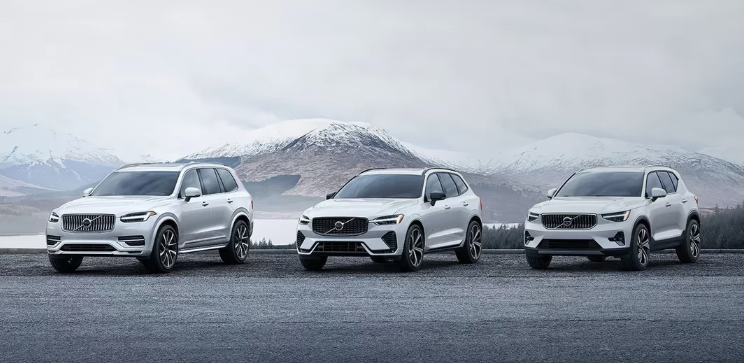Volvo is one of the most iconic brands in the automotive industry, standing out for its commitment to safety, innovation, and sustainability. With a global presence in more than 100 countries, Volvo has consolidated its position as a leader in the manufacture of premium vehicles, offering cars, trucks, buses, and construction equipment.
In this article, we will explore in detail who is the Volvo owner, the key aspects of its corporate structure, and who is the CEO of Volvo. In addition, we will cover interesting aspects of its history, including how the brand has evolved since its founding in 1927 to become a benchmark for quality and technology in the automotive market.
Table of Contents
Who Owns Volvo?
Volvo is a private company, meaning that its shares are not traded on the stock exchange. Although the brand has been known for its independence for decades, its ownership structure has changed over time. Today, Zhejiang Geely Holding Group is Volvo’s owner, a Chinese conglomerate that acquired the majority of the company’s shares in 2010. Geely Holding Group, founded by Li Shufu, an influential Chinese businessman, is one of the world’s leading automotive companies and also owns other car brands, such as the British brand Lotus, and has stakes in other companies in the sector.
Volvo has maintained its identity as a premium vehicle manufacturer focused on safety and sustainability, despite being under Geely’s ownership. As for shareholders, being a private company, details about shareholdings are harder to obtain, but Geely is known to be the largest shareholder with a significant stake. This relationship has allowed Volvo to access new resources and markets, while Geely benefits from the experience and prestige of the Swedish brand.
Discover here our detailed Volvo SWOT analysis.
Who is the CEO of Volvo?
Volvo Cars’ current CEO is Jim Rowan, who took up the role in March 2022. With a long track record in the automotive and technology industries, Rowan brings a combination of experience leading global companies and a clear focus on innovation and sustainability, which is key for Volvo in its transition to electrification.
Before becoming CEO of Volvo Cars, Rowan was CEO of Dyson, one of the most recognized companies in the home appliance and technology sector, where he led the brand’s global expansion and product diversification, including the development of new battery technologies. Additionally, before his time at Dyson, Rowan held many senior roles at Glen Dimplex, a global home appliance and energy solutions company, and at Bain & Company, where he worked in strategic consulting for clients in the automotive and technology industries.
Since joining Volvo, Jim Rowan has played a key role in accelerating the company’s electrification strategy. Under his leadership, Volvo has reinforced its commitment to becoming a fully electric brand by 2030, an important step towards sustainability and leadership in the electric vehicle sector. His leadership is setting a clear course for the future, consolidating Volvo’s position as a leader in sustainable mobility and advanced technology.
The History and Organizational Structure of Volvo

Volvo was founded in 1927 in Gothenburg, Sweden, by Assar Gabrielsson and Gustaf Larson. Initially, the company focused on manufacturing robust and safe cars, with a vision of producing vehicles that could withstand the harsh conditions of Swedish roads. This commitment to safety made Volvo famous for its innovations in this field, such as the introduction of the three-point seat belt in 1959, a breakthrough that has saved millions of lives.
Over the years, Volvo expanded beyond the automotive sector, incorporating lines of trucks, buses, and construction equipment. In 1999, Volvo Cars was acquired by the American giant Ford Motor Company, becoming part of the American group. However, in 2010, Ford sold Volvo Cars to Chinese conglomerate Zhejiang Geely Holding Group, marking a new chapter in the brand’s history. Since that acquisition, Volvo has maintained its operational independence but has benefited from Geely’s financial and resource backing.
Today, Volvo is structured into several divisions spanning different sectors of the automotive industry. Volvo Cars, the core division, specializes in passenger vehicles and is focused on electrification and sustainability. In addition, the company has important subsidiaries such as Volvo Trucks, Volvo Buses, and Volvo Construction Equipment, which operate independently within the conglomerate but remain aligned with the vision of offering high-quality products and advanced technology.
Interesting Facts About Volvo
Volvo is a brand that not only stands out for its innovations in the automotive sector but also for its commitment to sustainability and social responsibility. A curious fact is that Volvo was the first automotive brand to establish a commitment to zero carbon emissions by 2040, underscoring its leadership in the fight against climate change. In addition, in 2022, Volvo sold more than 700,000 electric vehicles and has pledged to increase this number as it continues to expand its line of fully electric vehicles.
The brand also has a strong presence in philanthropic projects. Through the Volvo Foundation, the company supports various initiatives focused on road safety, education, and social welfare. A notable example is its support of the “Volvo Ocean Race” program, which promotes marine sustainability and environmental awareness, in which Volvo has been a sponsor since its inception.
An interesting anecdote is that, in the 1950s, Volvo was one of the first brands to introduce crash tests in its vehicles, something that is now standard practice in the industry. This dedication to safety has been integral to the brand, making it a trusted reference for drivers around the world.
More info: Marketing Mix of Volvo and 4Ps
Conclusion
This article provides a comprehensive overview of Volvo, one of the most iconic brands in the automotive industry, noted for its commitment to safety, innovation, and sustainability.
The corporate structure of Volvo is discussed, highlighting that, although the company is owned by Geely, it operates independently, maintaining its focus on premium and sustainable vehicles. In addition, it mentions who is the CEO of Volvo, with Jim Rowan leading the transformation to a fully electric brand by 2030.
The article also explores interesting facts about Volvo, such as its support for philanthropic causes such as the Volvo Ocean Race. It also highlights its organizational culture focused on safety and innovation.
FAQ
Who is the owner of Volvo?
Zhejiang Geely Holding Group is the owner of Volvo Cars, a Chinese conglomerate that acquired the majority of Volvo’s shares in 2010. Although Geely is the main shareholder, Volvo continues to operate independently and maintains its focus on manufacturing premium vehicles.
What initiatives is Volvo taking in terms of sustainability?
Volvo has committed to becoming a fully electric brand by 2030 and aims to achieve zero carbon emissions by 2040. In addition, it has implemented the use of recycled and sustainable materials in its vehicles.
What philanthropic projects does Volvo support?
Through the Volvo Foundation, the brand supports various initiatives focused on road safety, education, and social welfare. In addition, it has sponsored the Volvo Ocean Race, an event that promotes marine sustainability and environmental awareness.
